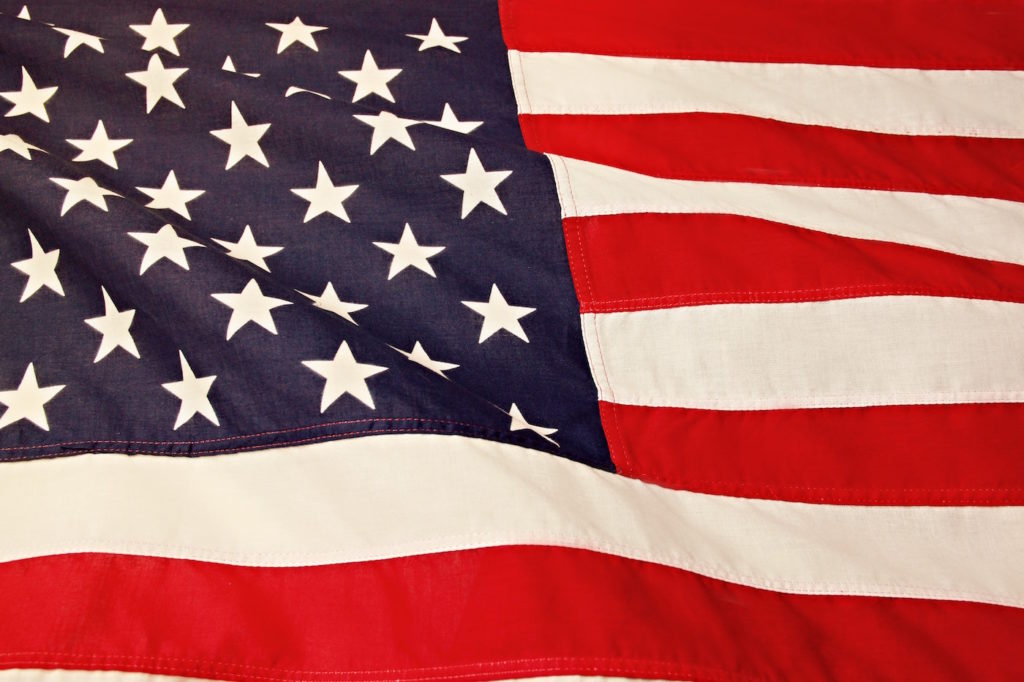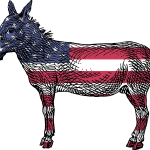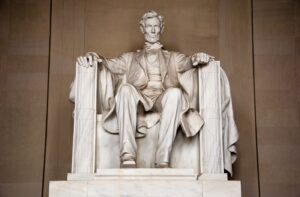In this time of deep political divisions, it is nice to be reminded that Americans agree on at least one important thing. Regrettably, the point of agreement is that something has gone very wrong in our country. After all, a properly functioning democracy would not elevate a boisterous political neophyte like Donald Trump to its highest office.
This agreement points immediately to a key disagreement—a sharp difference of opinion about where to assign responsibility for Trump’s improbable presidency. Some blame Trump’s voters, saying that their support for him shows that they are reckless at best and “deplorable and irredeemable” at worst. On the other side, some blame America’s political, economic, and media elites. After all, they reason, if those who run the country had managed our affairs competently, then the grievances that propelled Trump’s candidacy would never have been permitted to fester, and a protest candidacy like Trump’s would never have been able to succeed.
Tucker Carlson falls squarely in the latter category, as is evident from the title of his book: Ship of Fools: How a Selfish Ruling Class Is Bringing America to the Brink of Revolution. For more than two hundred pages, Carlson, the host of Fox News Channel’s most-watched evening show, excoriates the nation’s great and powerful for a generation of misrule that, in his telling, created the explosive environment in which the Trump rebellion could take off—and that might lead to even more explosive consequences if the Trump voters’ key concerns are not adequately addressed.
Common and Uncommon Criticisms
Start your day with Public Discourse
Sign up and get our daily essays sent straight to your inbox.Carlson faults our elites for both the substance and the style of their approach to politics. On the side of substance, he addresses some issues that have now been pretty widely discussed, such as the controversies stoked by an overly ambitious foreign policy, as well as by mass immigration and, more generally, by the elites’ uncritical celebration of diversity without limits. He also offers a necessary discussion of some questions that deserve serious consideration but that are often overlooked. Especially noteworthy here is his comparison of the elites’ deep interest (justifiable in itself) in the advances of women in American society with their almost complete indifference to the fact that many men are suffering increasingly from lack of education, joblessness, and drug addiction. As Carlson rightly notes, the social and economic failure of large numbers of men is in nobody’s interest since it inevitably hurts many women and indeed the whole society.
On the side of style, Carlson faults America’s elites for their increasing tendency to resort to denunciation as a mode of social control. On many of the issues he discusses, America’s rulers respond to criticism not with reasoned argument but with moral condemnation, accusing their detractors of racism, sexism, and xenophobia. As he suggests, this can only breed a greater sense of resentment in an already disgruntled and sizable population of Americans and is therefore unlikely to end well for the country.
Just Another Arrogant Journalist?
One’s immediate reaction to Carlson’s project is perhaps unavoidably mixed. On the one hand, it is fun to read. Carlson is an amusing conversationalist, and his own authentic voice speaks directly from every page. I am informed that Carlson writes his own opening monologues, and reading each chapter is like listening to an extended version of one.
On the other hand, it is impossible to overlook the effrontery of it. After all, who is a journalist—a TV commentator—to call other people fools, especially the ones who take responsibility for running the country and dealing with its complex and sometimes intractable problems? Confronted with Dwight Eisenhower’s apparently bumbling press conferences, some reporters referred to him as “old bubble head.” It figures. Only a journalist would think he is smarter than the man who planned and supervised the biggest and most complicated military operation in the history of the world.
Nevertheless, one can’t easily dismiss the dreadful thought that Carlson might be correct in his assessment of our rulers. After all, there are precedents of great nations being run by mediocre (and worse) people. There is even one example directly relevant to the creation of America in the first place. In 1775, the great British Parliamentarian Edmund Burke observed that “a great empire and little minds go ill together.” Burke was not just theorizing but was directly warning that the men who administered the British Empire were, by their petty unwillingness to address the American colonists’ just complaints, about to lose Britain’s North American colonies. Burke was proven right in relatively short order, and one can’t help but wonder whether a country that was brought into existence by the foolish inflexibility of a generation of British politicians might not in the end fall apart from a similar folly in its own leaders.
Taking History and Human Nature Seriously
Carlson earns his right to chastise and instruct our elites by demonstrating an ability to see further and probe more deeply than they do. His title suggests that there is something wrong with their hearts: they are selfish and indifferent to the struggles and opinions of many Americans, on whom they look down with contempt. But Carlson’s book also shows that there is an intellectual problem with our elites as well. Their minds are utterly confined to the present moment (that is, to the politics of the early twenty-first century), and this tends to make them both censorious and oblivious.
As Carlson observes, our elites treat some opinions as beyond the pale, overlooking that they were in fact mainstream until just recently. Immigration provides a key illustration. Today, to raise concerns about immigration is to risk being labeled a nativist or xenophobe. Yet, as Carlson demonstrates, even prominent liberals from a generation or two ago worried about the possibilities that mass immigration would undercut American wages and impede assimilation to America’s civic culture. Since the liberal leaders who raised these concerns—people like César Chavez, Barbara Jordan, and Bill Clinton—were not unreasonable or depraved people, it is hardly fair to make such claims about people who hold similar views today. The proper response to such concerns is reasoned argument, not denunciation.
Carlson takes an even longer historical view by raising the question of the country’s very existence. Addressing our elite’s enthusiastic celebration of diversity as “our highest value,” Carlson asks, “why should a country with no shared language, ethnicity, religion, culture, or history remain a country” at all? This is a good question. At the peak of Rome’s power and glory, many Roman citizens were pleased to think of the empire as part of the eternal order of the world. In due time, history, which can be a pitiless teacher, proved otherwise. Many American leaders who came of age during the time of America’s ascendancy—reared on the idea of America as the “world’s only superpower” or the “indispensable nation”—seem to think of the country as a permanent, indestructible fact. But no political order—especially one the size and complexity of the United States—has to exist. Rather, America came into existence because its Founders held a certain understanding of it—a definite idea of the country’s character, which necessarily places a limit on diversity—and then exerted themselves to put that understanding into practice. If we give up on any unifying idea of America, mightn’t the country just fall apart?
Finally, Carlson looks beyond history and raises the question of human nature. America’s present-day elites uncritically celebrate not only diversity but also “change.” They sometimes seem to be in love with the idea of transforming the country with which they have been entrusted, the more quickly the better. “Human beings aren’t wired for that,” Carlson warns. “They can’t digest change at this pace.” Once again, Carlson has a point. Ordinary human beings—who necessarily make up the vast majority of America or any other country—usually don’t crave social transformation for its own sake but instead peace and quiet in which to pursue their own personal interests. Our elites, then, ought to consider that if they insist on a course that runs against human nature, human nature, embodied in their ordinary fellow citizens, may turn against them.
In short, the values America’s elites cherish are not the incontestable truth of things, and they may even run counter to the deeper truths of American politics and human life. Those who aspire to lead our country—and to deserve to lead it—would do well to ponder these lessons, even if the first step in doing so requires them to listen to the journalist Tucker Carlson, who proves by this book that he is more than just a journalist.













